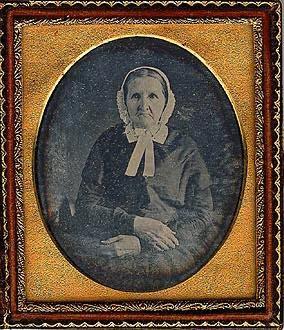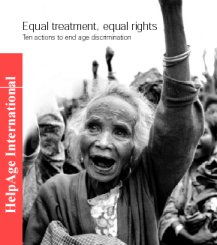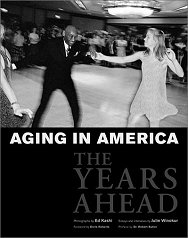
It is the meaning that men attribute to their life, it is their entire system of values that define the meaning and value of old age. The reverse applies: by the way in which a society behaves toward its old people it uncovers the naked, and often carefully hidden, truth about its real principles and aims.
--Simone de Beauvoir, The Coming of Age
If we were able to bring someone from Shakespeare's time and deposit them onto a beach in contemporary Orlando, perhaps what would be the most striking to this individual would not be the 747 overhead but rather the large number of older individuals. Click here to see:
Generations now alive are among the first in history to be raised
with the expectation of old age, forerunners of a longevity revolution
 that will be felt for centuries to come. Some twenty percentage of all
humans who have ever lived past the age of 65 are now alive. So profound
is this demographic revolution that every aspect of social life and society
is affected. A late 1980s Census Bureau study noted that "rapidly
expanding numbers of older people represents a social phenomenon without
historical precedent...[that] has various economic implications for individuals,
families, public policy-makers." Those now old--420 million world-wide as
of 2001--are literally pioneers
of a new stage of the lifespan and the life course they're trailblazing
will determine--in part--our own passages through time. To view the
international scope of this demographic phenomenon see the Census Bureau &
National Institute of Aging's An
Aging World: 2001 (pdf format, 190 pp.) and HelpAge International's
"An
Ageing World.".
that will be felt for centuries to come. Some twenty percentage of all
humans who have ever lived past the age of 65 are now alive. So profound
is this demographic revolution that every aspect of social life and society
is affected. A late 1980s Census Bureau study noted that "rapidly
expanding numbers of older people represents a social phenomenon without
historical precedent...[that] has various economic implications for individuals,
families, public policy-makers." Those now old--420 million world-wide as
of 2001--are literally pioneers
of a new stage of the lifespan and the life course they're trailblazing
will determine--in part--our own passages through time. To view the
international scope of this demographic phenomenon see the Census Bureau &
National Institute of Aging's An
Aging World: 2001 (pdf format, 190 pp.) and HelpAge International's
"An
Ageing World.".
OUTLINE OF PAGE
Aging is not a singular process: we age biologically, psychologically, and sociologically, and the "aging experience" is determined by the unique interactions between these various clocks.
Does the gerontological enterprise ultimately boil down to being a study of biological change? Of course not. The challenge is to push the field from being a multidisciplinary endeavor to being a interdisciplinary endeavor, to ultimately understanding the complex interactions between biological, psychological, sociological, and cultural processes. The aging experience is, for instance, shaped by individuals' birth cohorts and the slices of social history intersecting their biographies; by their genetic make-up and personality types; and by their positions within the stratification orders of social class, gender, race and ethnicity. Research indicates that many of the popular myths and stereotypes of old age are simply unfounded. What connections can you find in the resources below?


Click here for the results of a most interesting national survey, conducted in October of 1999 by the
Los Angeles Times, on Americans' attitudes toward and preparations for old age and retirement, care of elderly
family members, likelihood of own children caring for oneself when old, and death.
Among the conclusions:
detected by the survey is "a generation of older Americans who are poised
not only to defy long-standing views of aging but to redefine this stage of
life. And the expectations of those now entering this generation are different
from their predecessors, a trend that will only intensify, experts say, as baby
boomers age."
![]()